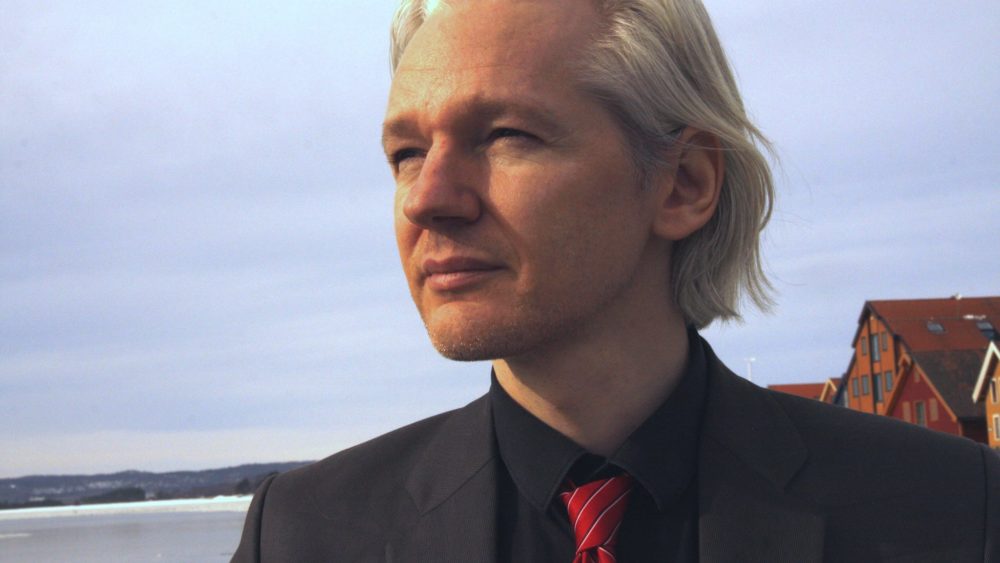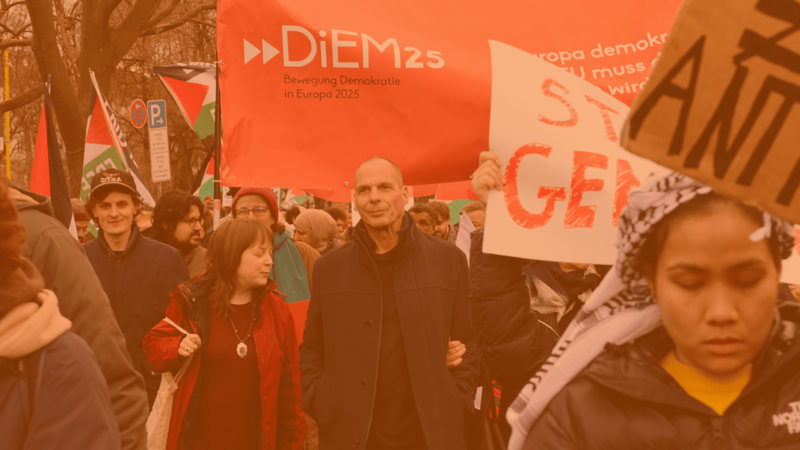Julian called me a little earlier, at 14.22 London time from Belmarsh High Security Prison of course.
This is not the first time but, as you can imagine, every time I hear his voice I feel honoured and moved that he should dial my number when he has such few and far between opportunities to place calls.
“I want a perspective on world developments out there — I have none in here”, he said. Which, of course, placed a considerable burden on me to articulate thoughts on capitalism’s fate during this pandemic and the repercussions of it all on politics, geopolitics etc. The knowledge that Her Majesty’s Prison authorities would discontinue our discussion at any moment made the task harder.
In a feeble attempt to paint a picture for him on as broad a canvass as possible, I shared with Julian my main thought of the last weeks:
Never before has the world of money (i.e. the money markets, that include the share markets) been so decoupled from the world of real people, real stuff — from the real economy.
We watch in awe as GDP, personal incomes, wages, company revenues, businesses small and large, collapse while the stock market is staying relatively unscathed. The other day, Hertz declared bankruptcy. When a company does this, its share price goes to zero. Not now. In fact, Hertz is about to issue $1 billion worth of new shares. Why would anyone buy shares of an officially bankrupt company? The answer is: Because central banks print mountain ranges of money and give it for almost free to financiers to buy any piece of junk floating around the stock exchange.
“Complete zombification of the corporations”, is how I put it to Julian. Julian commented that this proves that governments and central banks can keep corporations afloat even when they sell next to nothing at the marketplace. I agreed. But, I also pointed out a major conundrum that capitalism faces for the first time. It is this:
Central bank money printing keeps asset prices very high while the price of ‘stuff’ and wages fall. This disconnect can go on growing. But, when Hertz, British Airways etc. can survive in this manner, they have no reason not to fire half the workforce and to cut the wages of the other half. This creates more deflation/depression in the real economy. Which means that the Central Banks must print more and more to keep asset and share prices high. At some point, the masses out there will rebel and governments will be under pressure to divert some income to them. But this will deflate asset prices. At that point, because these assets are used by corporations as collateral for all the loans they take out to stay afloat, they will lose access to liquidity. A sequence of corporate failures will commence under circumstances of stagnation. “I don’t think capitalism can easily survive, at least not without huge social and geopolitical conflicts, this conundrum”, was my conclusion.
Julian thought about this for a moment and asked me: “How important is consumption to capitalism? What percentage of GDP is at stake if consumption does not recover? Do the corporations need workers or customers?” I answered that it was high enough to make this conundrum real. Yes, Central Banks and robots can keep the corporations going without customers or workers. But, robots cannot buy the stuff they produce. So, this is not a stable equilibrium. The losses in people’s incomes will accelerate, thus generating pivotal discontent.
Julian then said something along the lines of: That will benefit Trump who knows how to feed off the anger of the multitudes toward the educated, upper middle-class elites. I agreed, saying that DiEM25 has been warning since 2016 that socialism for the oligarchy and austerity for the many, in the end, feeds the racist ultra-right. That we are experiencing again what happened in the 1920s in Italy with the rise of Mussolini.
Julian agreed entirely and said: Yes, like then, there is an alliance forming between rich people and the discontented working class. He then added that most of the prisoners and the prison officers in Belmarsh support… Trump. At that point the connection was cut off.
Our conversation lasted 9’47’’. It was more substantive, and of course moving, than any conversation I have had in a while.
Read more of Yanis Varoufakis’ thoughts on his personal blog.
Do you want to be informed of DiEM25's actions? Sign up here










